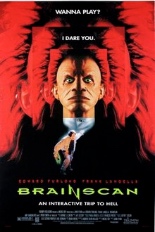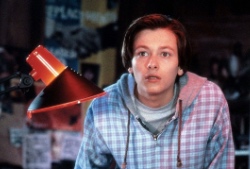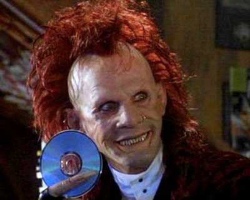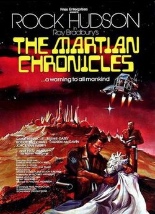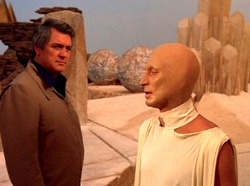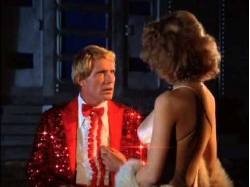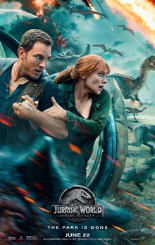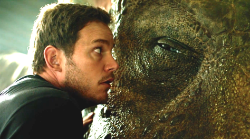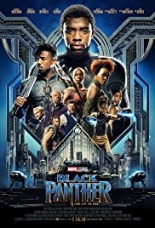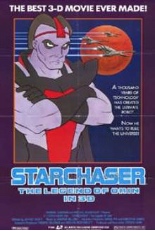
 Upon its dismal original release, Starchaser: The Legend of Orin was positioned to be a Star Wars for the next generation, which, of course, it wasn’t. But, for cartoon nerds whose first love was weirdly cheap French animation — think Fantastic Planet — but needed a wholly North American story they could glom on to, I guess this flick will do just fine.
Upon its dismal original release, Starchaser: The Legend of Orin was positioned to be a Star Wars for the next generation, which, of course, it wasn’t. But, for cartoon nerds whose first love was weirdly cheap French animation — think Fantastic Planet — but needed a wholly North American story they could glom on to, I guess this flick will do just fine.
Orin is a slave working in the coal crystal mines and before he can say “Lord, I am so tired … how long can this go on?” he finds a glowing laser-sword — a light-saber, if you will — in the dirt. Before he can toss it out, a little wizard pops out of the handle and tells him he’s his people’s only hope. This all sound somewhat familiar yet?
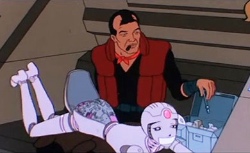 Filled with plenty of misplaced promise, he takes on a couple of robots and their laser-whips, escaping his nightmarish hellhole to the mildly bad-dreamish surface world filled with swamp-monsters, man-droids and a supposedly cool Han Solo-type that suggestively calls Orin “my little water-snake” in between making out with a sex robot that I’m pretty sure was on the cover of Aerosmith’s Just Push Play.
Filled with plenty of misplaced promise, he takes on a couple of robots and their laser-whips, escaping his nightmarish hellhole to the mildly bad-dreamish surface world filled with swamp-monsters, man-droids and a supposedly cool Han Solo-type that suggestively calls Orin “my little water-snake” in between making out with a sex robot that I’m pretty sure was on the cover of Aerosmith’s Just Push Play.
They go on various adventures, visiting dumb planets and fighting stupid aliens, all in an effort to take down the dastardly overlord Zygon. I’m not giving anything away to say that they do, but it’s all still nowhere near as pseudo-exciting at George Lucas’ sci-fi spree; with the further adventures of Anakin Skywalker — whizzer! — and gang still a good 15 or so years away, I guess Starchaser was the best you could do for swashbuckling adventure in 1985.
Directed by Steven Hahn, this film is probably more famous for spending about 17 days in the theaters, when it was quickly pulled by distributor Atlantic Releasing after making only $3.3 million. But, somewhere out there, the dream for a live-action Starchaser is alive, when Rilean Picture announced one is coming in March.
Of 2012, that is. —Louis Fowler

